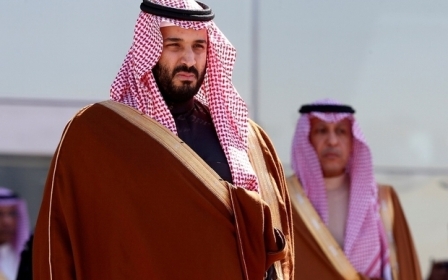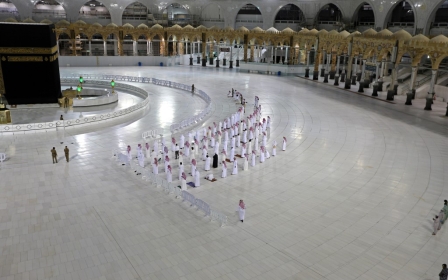Coronavirus: Saudi finance minister planning budget cuts to deal with pandemic

Saudi Arabia will take strict and painful measures to deal with the economic impact of the coronavirus pandemic, Finance Minister Mohammed al-Jadaan said in an interview with Al Arabiya TV, adding that "all options for dealing with the crisis are open".
"We must reduce budget expenditures sharply," Jadaan said in comments published on Saturday ahead of the interview's broadcast, according to Reuters. No details of possible measures were given.
New MEE newsletter: Jerusalem Dispatch
Sign up to get the latest insights and analysis on Israel-Palestine, alongside Turkey Unpacked and other MEE newsletters
The world's biggest oil exporter is suffering from historically low oil prices, while measures to fight the new coronavirus are likely to curb the pace and scale of economic reforms launched by Crown Prince Mohammed bin Salman (MBS).
Saudi Arabia's central bank foreign exchange reserves fell in March at their fastest rate in at least 20 years, hitting their lowest since 2011, while the kingdom slipped to a $9bn budget deficit in the first quarter as oil revenues collapsed.
A Saudi financial decline has actually been in the works for some time, Middle East Eye reported last month. When MBS’s father took over as king on 23 January 2015, foreign reserves totalled $732bn. In December last year, they had been diminished to $499bn, a loss of $233bn in four years, according to the Saudi Arabian Monetary Authority.
Finance Minister Jadaan noted the country had introduced stimulus measures aimed at preserving jobs in the private sector and safeguarding the provision of basic services.
Earlier this week he said Riyadh could borrow about $26bn more this year and would draw down as much as $32bn from its reserves to finance the deficit.
On Saturday, he said withdrawals from the kingdom's cash reserves this year must not exceed a total of about $29bn, as specified in the budget.
Middle East Eye delivers independent and unrivalled coverage and analysis of the Middle East, North Africa and beyond. To learn more about republishing this content and the associated fees, please fill out this form. More about MEE can be found here.





